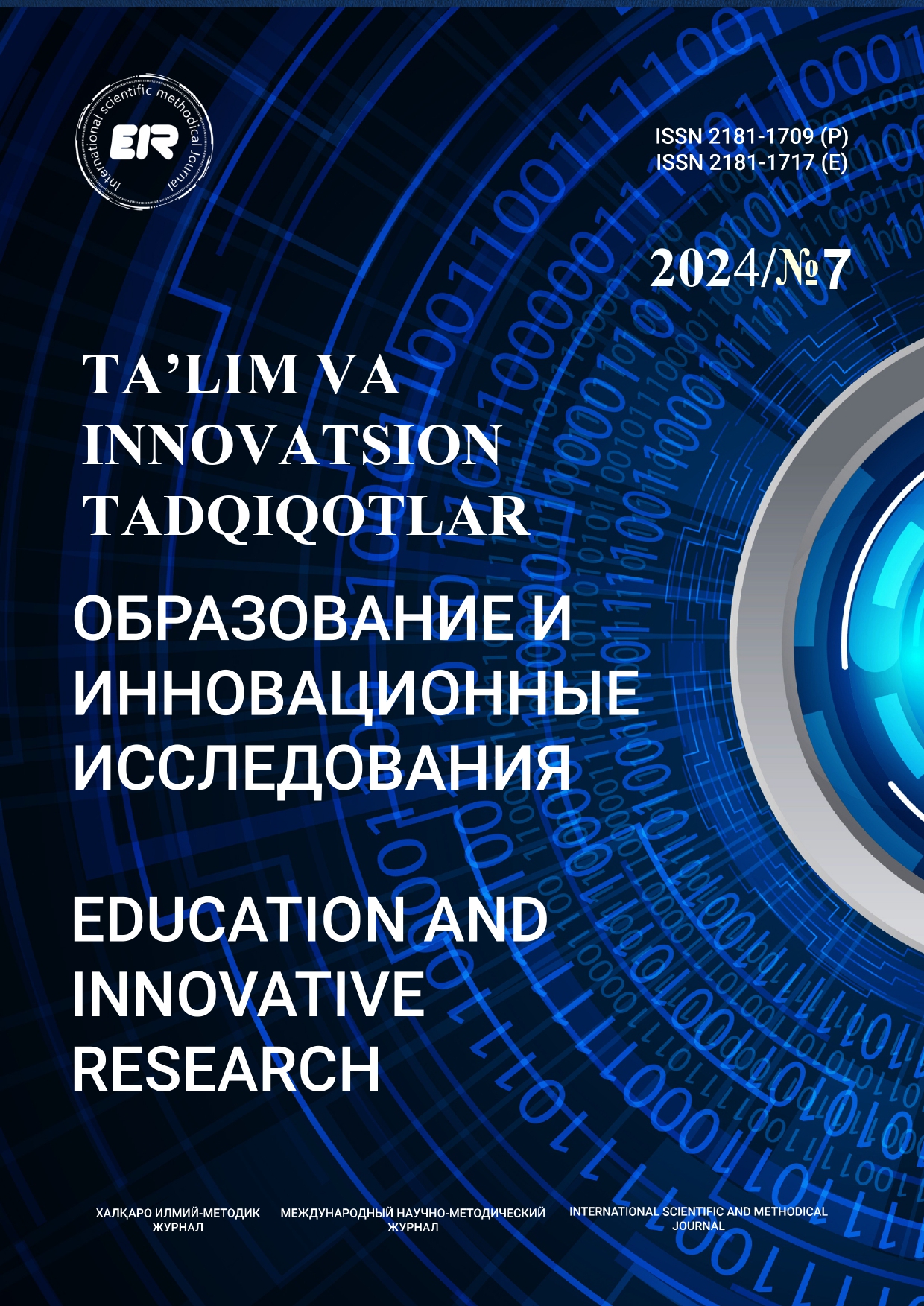МЕТОДЫ ПСИХОЛОГИЧЕСКОГО ВОЗДЕЙСТВИЯ ПРИ ФОРМИРОВАНИИ УВЕРЕННОСТИ В СЕБЕ У ШКОЛЬНИКОВ
Хайруллаев Қодир Зарфулла ўғли, магистрант Казанского федерального университета
Ключевые слова:
уверенность в себе, когнитивно-поведенческие методы, школьники, когнитивная перестройка, позитивный внутренний диалог, визуализация, педагогическая психология, успеваемость.Аннотация
Уверенность в себе является важным компонентом общего благополучия и академических успехов учащегося. В данной статье рассматриваются различные психологические методы, используемые для повышения уверенности в себе у школьников. Анализируя теоретические основы и эмпирические исследования, в статье подчеркивается эффективность различных вмешательств, включая когнитивно-поведенческие методы, системы социальной поддержки и стратегии положительного подкрепления. Результаты показывают, что многогранный подход, адаптированный к индивидуальным потребностям, наиболее эффективен для повышения уверенности учащихся в себе.
Библиографические ссылки
Bandura, A. (1977). Self-efficacy: Toward a unifying theory of behavioral change. Psychological Review, 84(2), 191-215.
Beck, A. T. (1976). Cognitive Therapy and the Emotional Disorders. New York: International Universities Press.
Driskell, J. E., Copper, C., & Moran, A. (1994). Does mental practice enhance performance? Journal of Applied Psychology, 79(4), 481-492.
Feltz, D. L., & Landers, D. M. (1983). The effects of mental practice on motor skill learning and performance: A meta-analysis. Journal of Sport Psychology, 5(1), 25-57.
Hardy, J., Hall, C. R., & Hardy, L. (2001). A note on athletes’ use of self-talk. Journal of Applied Sport Psychology, 13(2), 244-253.
Hatzigeorgiadis, A., Zourbanos, N., Galanis, E., & Theodorakis, Y. (2009). Self-talk and sports performance: A meta-analysis. Perspectives on Psychological Science, 4(4), 348-356.
Kendall, P. C., Marrs-Garcia, A., Nath, S. R., & Sheldrick, R. C. (1992). Cognitive- behavioral therapy for anxiety-disordered youth: A randomized clinical trial evaluating child and family modalities. Journal of Consulting and Clinical Psychology, 60(5), 816- 826.





